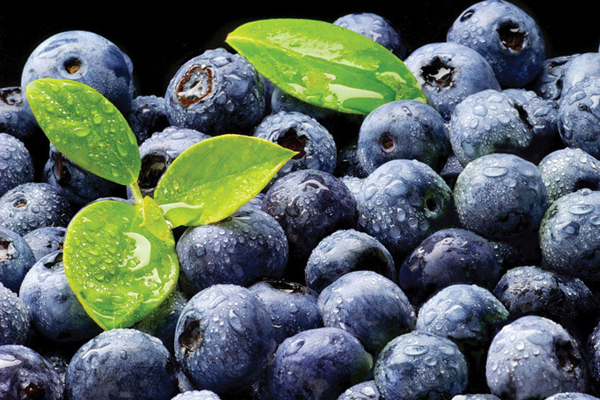I love blueberries, but I’ll probably never be able to eat enough of the healthy little super fruit to boost my aging brain.
So, my interest was piqued by the recent study testing whether a USF-developed antioxidant-rich nutritional supplement, called NT-020, which includes blueberries as one of its main ingredients, could improve the mental performance of healthy older adults.
httpv://www.youtube.com/watch?v=wcaOx28CjKg&feature=share&list=UUzZzLGbYx9OHlCjN5TTSv4w
The two-month trial randomized adults ages 65 to 85 to either a group receiving the supplement or a group getting a placebo pill; neither the researchers nor the study participants knew who was receiving the supplement. That was important in attributing any benefit observed in cognitive performance to the compound itself, rather than other factors like physical activity and mental exercises.
The supplement modestly improved measures of “cognitive processing speed.” Those taking the NT-020 were able to more quickly complete tasks like matching identical patterns or comparing lists of multiple-digit numbers. This information processing speed is one of the first cognitive functions to slip as we age, and it appears to underlie more complex cognitive functions like memory and verbal ability.
USF Health/VA neuroscientist Paula Bickford, PhD, teamed up with USF gerontologist Brent Small, PhD, to assess the NT-020 formula patented by USF in partnership with James A. Haley Veterans’ Hospital.
She believes the concentrated doses of antioxidants and other natural components in the supplement help reduce age-related damage to stem cells in the brain and can lead to an enriched environment for the neurons there, leading to better cognitive performance.
So, why can’t you just consume lots of blueberries, strawberries, green tea or whatever your favorite antioxidant-rich food happens to be to get the benefit shown in the trial?
“It’s the unique combination and interaction of certain ingredients in just the right amounts that is most potent in boosting the cells in the body important for brain health,” said Bickford, who uses rat models to study oxidative stress and inflammation in aging.
“Ultimately, we’re interested in finding ways that people, who are living longer, can maintain their cognitive health for as long as possible,” Small said.
The supplement may be another way to prevent or delay the age-related cognitive decline that eventually affects most Americans – but both Bickford and Small emphasize it’s not a substitute for obtaining nutrients from healthy foods.
Bickford uses the commercially available NT-020 supplement daily. She also makes smoothies with blueberries, tosses fresh or frozen blueberries onto her spinach salads, and drinks plenty of green tea — another ingredient in the supplement, which also includes vitamin D3 and amino acids.
So, I’ll keep on eating lots of blueberries, because they’re delicious. But, since I’m not getting any younger in a fast-paced world, I’m tempted to give the NT-020 a try.
Video Editor: Klaus Herdocia, USF Health Communications

